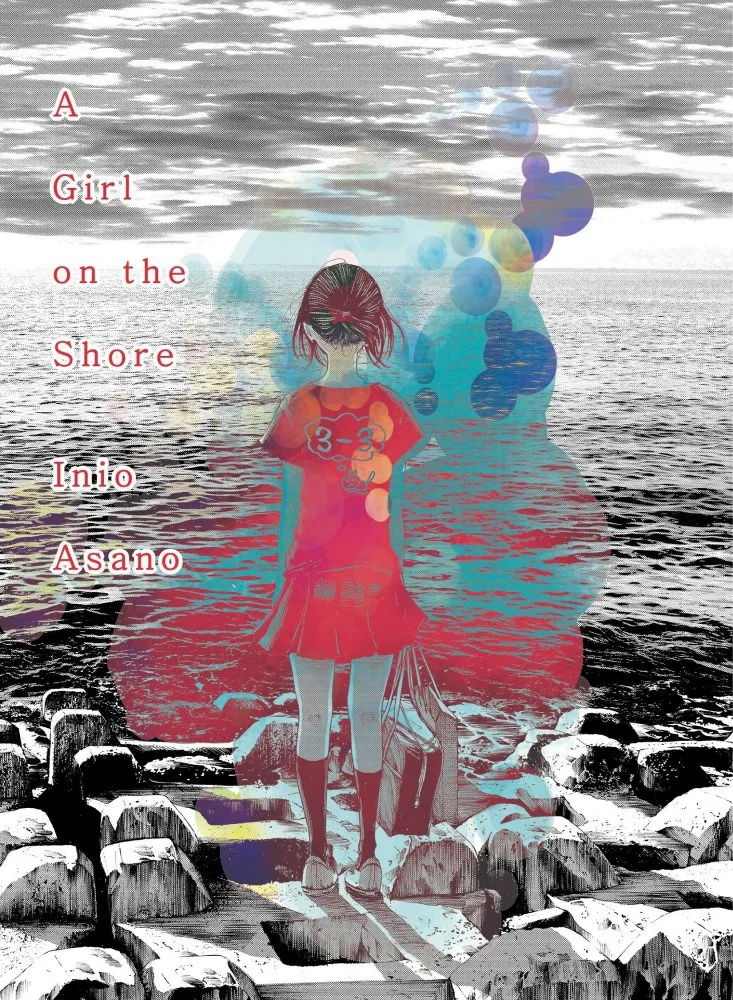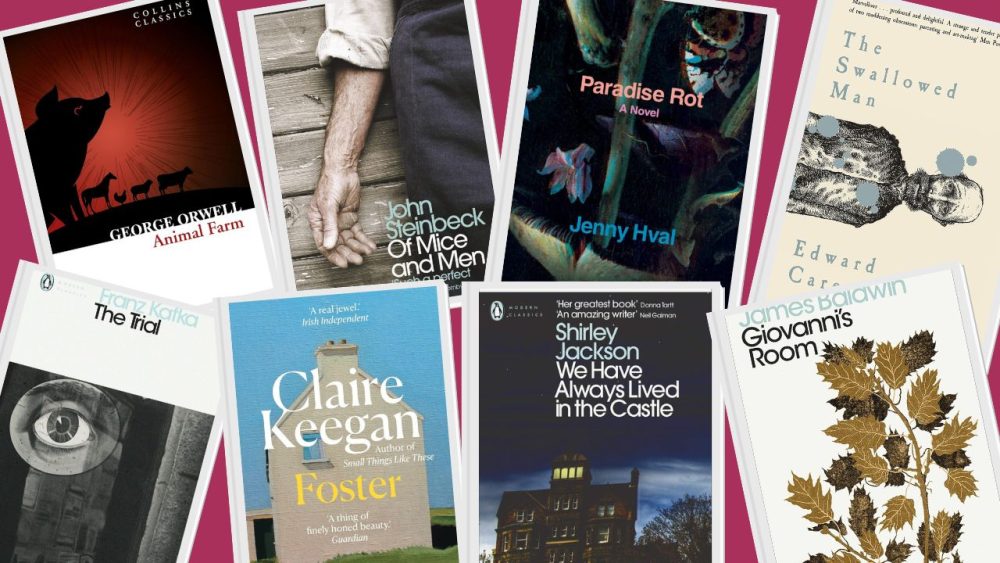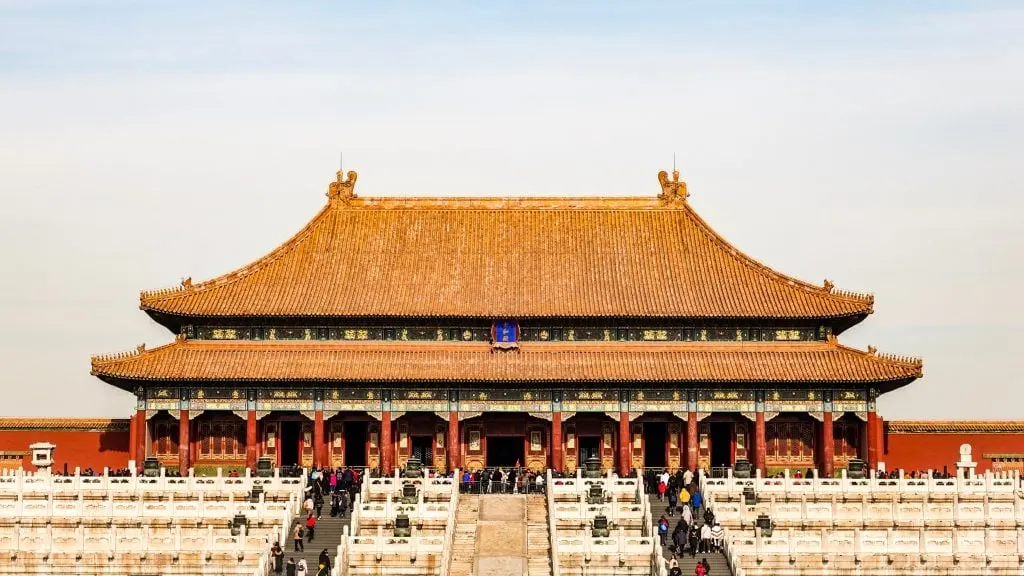Born in Madrid, Ainhoa moved as a child to Málaga, a Southern coastal city known for being mentioned in an Ed Sheeran’s song and for being the actual place where Picasso was born. (No, he’s not from Catalonia. You’re thinking of Dalí.)
Fond of literature from an early age, she won a Korean literature essay contest in 2013 held by LTI Korea. This year she has won a poetry translation award by the UNAM in Mexico. Ainhoa is currently living in Seoul as a fellowship student in the Institute of Literary Translation of Korea, translating from Korean to Spanish.
She is one of the very few translators of Korean literature into Spanish without a Korean upbringing.
Part of our Meet the Translator Series.
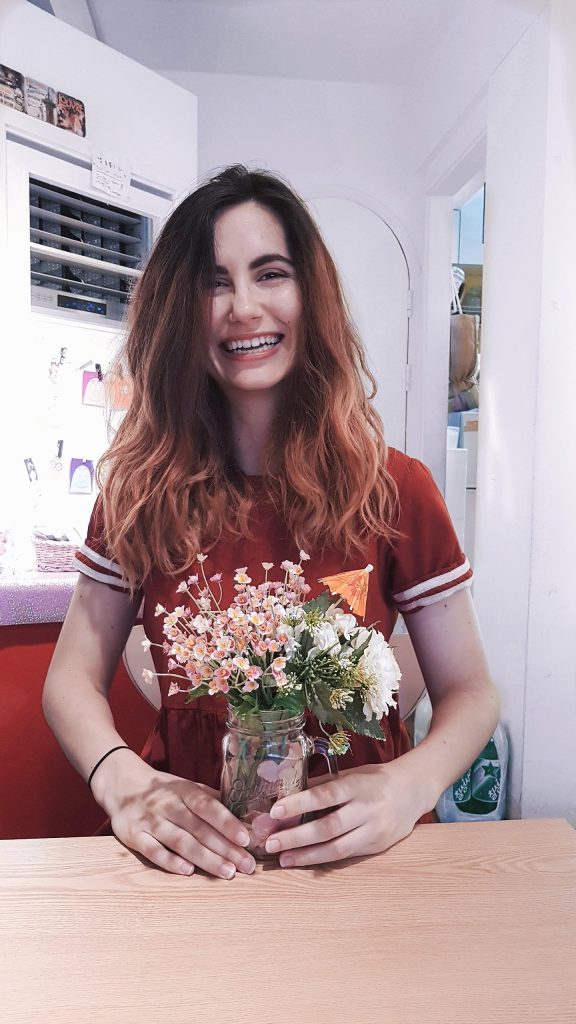
Ainhoa Urquia (@objetivocorea)
What made you want to be a translator?
I’m lucky enough to have one of those beautiful life-changing love stories with Korean literature, like the ones in American romcoms where the main characters spot each other from opposite corners of a party, the music starts and the slow motion begins.
I was studying Psychology at the University of Málaga, which happened to be the first university in Spain to run a degree in Korean studies. I passed by a poster about an essay contest on Korean literature. At that time, I had no idea about Korea let alone Korean literature, but the poster said the participants could read an unedited Spanish translation of a short story by a Korean writer.
I’ve always enjoyed writing and at that time I was spending more time collaborating with magazines and fanzines and reading every book that ended up in my hands than focusing on my grades on psychoneuroendocrinology (which is fascinating). So I decided to participate in the contest.
The story was “Breath”, by Cheon Un Yeong and it clicked with me in a special way. I ended up winning the first prize of that award, and when I listened to the author reading the original version in the ceremony I thought “Wow, this is beautiful, I need to understand this”.
A year later I was in Korea as an exchange student and I’ve been studying ever since, learning all about Korean culture, society, and literature. Now I’m a fellowship student at the LTI Korea and I’m graduating next year.
What’s your translation process?
First, I divide the text in chunks so I can manage it easily. Then, I work on each part. I check all the vocabulary, which is most of the time one Korean word or expression and next to it a list of a bunch of possibilities, so I don’t discard any option in the early stages of the vocabulary choice.
I also search some of the words I already know, especially in sentences with little context, because there’s always a chance that it’s a homonym for a completely different concept (which always creates funny situations before it’s untangled).
After that, I write a hideous literal translation that I use for reference, so I don’t lose the original expressions in case I change my mind after altering the text patterns too much. I then work on that draft to create the final translation.
This is the most creative part, and the reason I particularly love translating poetry because it’s more of a challenge and I can play with the author’s words over and over again until I say ‘Ok, this is as beautiful in Spanish as it is in Korean’.
Then I let it rest a few days so I can forget about it and check it with new eyes. That’s key for me. I look for a second opinion and have a colleague translator read it and finally I test it with someone who doesn’t speak Korean or knows anything about Korean culture, usually a member of my family.
How many languages do you speak and what made you learn them?
I’m a native speaker of Spanish, and I’ve learnt to love it even more now I live abroad and especially now that I’m a translator and I have to make sure my Spanish is on point.
Being native makes it easier, but it isn’t all it takes, you have to open the target language’s bonnet and get your hands greasy. Experimenting with my own mother tongue and getting to know it is one of the things I love the most about translating.
About my second language, I was so privileged. My father opened an English school where I attended for free from the age of 7. I had excellent teachers from the United Kingdom, Ireland, the US, and I learnt not only about the English language but about the culture, traditions, and cultural reference.
Many people look down on language instructors, but I think that when they’re engaged with what they do, they create a whole new world in their students’ minds.
What made you interested in studying multiple languages?
For me, it was a passion for languages and the realization that I had the potential to express myself in many different codes.
The rest of my classmates were from the wealthy zone of the city and I didn’t quite fit in. They all came wearing their uniform, straight from their private school and I was wearing just the same cargo jeans I had worn during the morning.
I was the manager’s daughter, but it was just a small family business. Then I kept on improving and when I was about 12 years old I was in the adult class with two guys from a company that sent its executives to improve their English skills.
They seemed really annoyed by my presence there, but I was happy because they were old and didn’t wear uniforms. But I’m digressing…
I also love French literature and culture and spent a semester in Normandy as well so I used to have a good command of French, but now every time I try to speak it I mix it with Korean structure and it’s a mess. I understand it pretty well though and I’d like to take it up again in the future.
I’m also interested in Spain’s regional languages like Galician, Basque, and Catalan. My grandmother was from Galicia, and I remember her language as the language of my summers in the Spanish countryside. Also, my name and first surname (we have two in Spain, the father’s and the mother’s) are Basque but I can’t even say hello in Basque, which is a super interesting pre-roman isolated language.
I was interested in learning more and really understanding my own name, just like the tarot parlours in the Korean streets where they analyze your name and let you know your fortune.
What are you reading right now?
Although I’m focused on translation at the moment, I also write poetry, so I’m following, from a distance, all of the young voices in Spain’s poetry scene at the moment, which is so exciting.
One is Ángelo Néstore, an Italian translator established in Málaga, that creates his work in Spanish as well. He won one of the biggest Spanish poetry awards last year with ‘Actos Impuros’, a celebration of queerness where he also explores the feelings of fatherhood/motherhood.
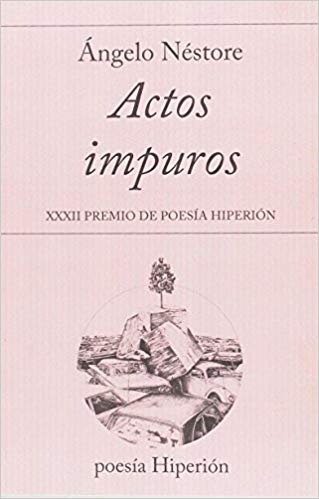
He’s also doing a lot to spread underrepresented perspectives among Spanish creators. Totally recommended!
What are you excited about or working on now?
Well, I’m just an emerging translator, so I haven’t got a book published yet, I hope to have good news about it next year, after my graduation from the LTI Korea. But I’m collaborating with a Spanish literary magazine Oculta Lit for their next issue with a few poems by Korean female authors.
I think it’ll be the first time a Spanish literature magazine features a piece of Korean literature so while I’m overwhelmed by the sense of responsibility, I’m also really excited. It’s so nice of the editors to trust me on this and bet on Korean literature, so I’ve put all my love into it. It’ll be out in January, I think. I’ll be spamming everyone about it on my Twitter @objetivocorea if anyone is interested.
How involved are you, in the promotion of the books you translate? Your views on social media?
It depends on the language you translate from. In my case, I translate Korean literature into Spanish, so it’s so specific and new in the Spanish market that first of all, I think we have to persuade everyone that’s it’s worth it!
So, yes, I’m 100% an advocate for the role of social media in promoting a culture, a new perspective, a new voice. I’m an active Instagrammer and I share all about Korean culture and my feelings about Korean culture and literature all the time, and now I get messages by people saying ‘hey, now I really want to read Korean books in Spanish, recommend me some!’
I think that when you’re honestly passionate about something and you’re able to transmit it to the people you interact with, they’ll become interested in it too. Of course, for an established literary tradition, I guess social media’s importance fades a bit, but for my case, it’s part of my job and I love doing it.
Thank you Ainhoa for this lovely interview! Follow her on twitter for her latest news.

